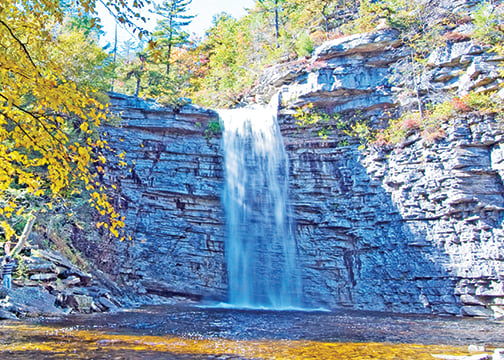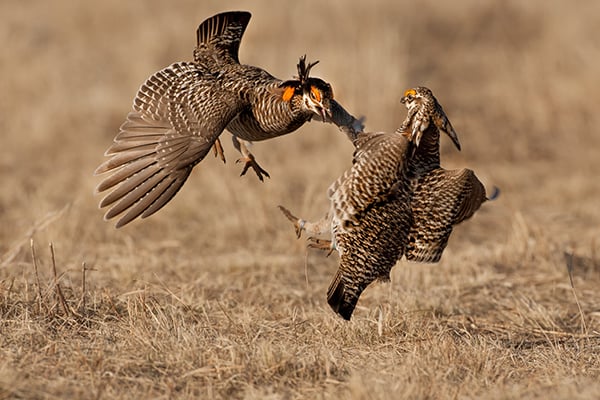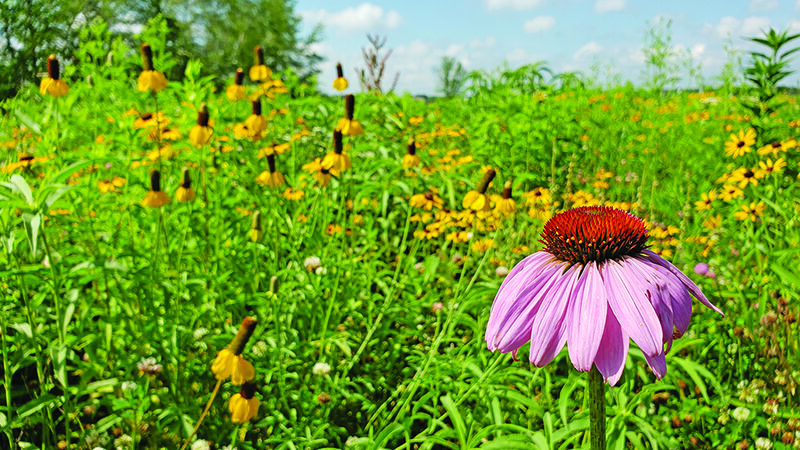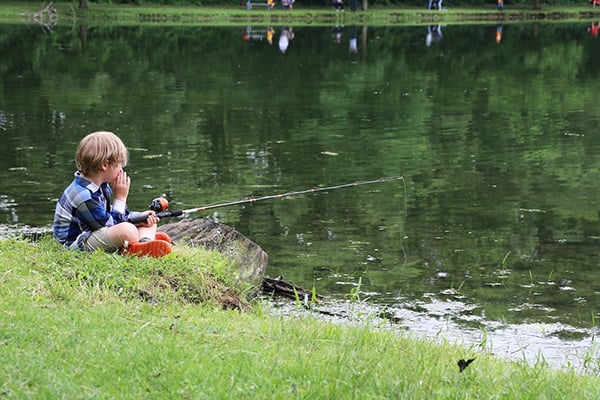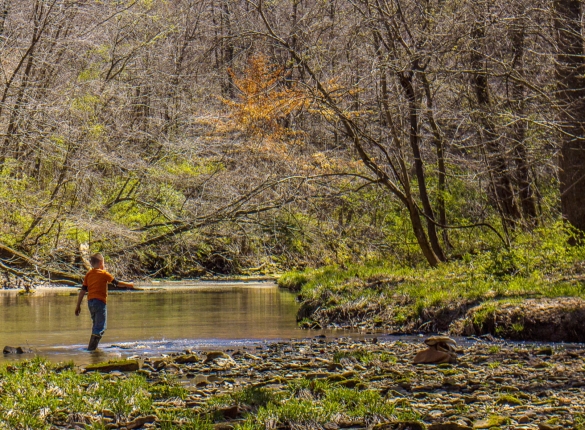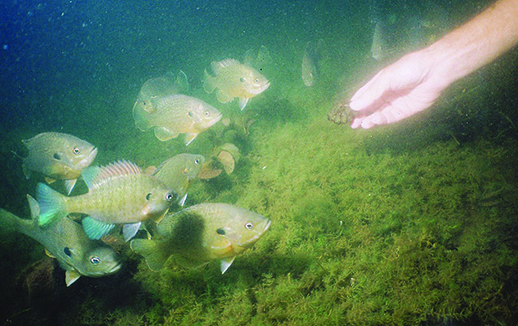A quick chat with Collin O’Mara of the National Wildlife Federation – Outdoor News
Reston, Va. — Collin O’Mara serves as president and CEO of the National Wildlife Federation (NWF), America’s largest wildlife conservation organization with 52 state and territorial affiliates and nearly 6 million hunters, anglers, birders, gardeners, hikers, paddlers, and wildlife enthusiasts among its members.
Under O’Mara’s leadership, the NWF is focused on recovering America’s wildlife ranging from bison and bighorn sheep to pollinators like monarch butterflies and native bees, improving management of and access to public lands, restoring America’s water bodies, advancing environmental education, and connecting every American child with the great outdoors.
O’Mara practices what he preaches, taking every opportunity that he can to take two of his young daughters (the third is still an infant) on fishing and hiking trips around his Virginia home.
Outdoor News recently spent a short while visiting with O’Mara for a Quick Chat about the state of the NWF and its future. The responses have been edited for brevity.
Outdoor News: What issue or issues are most pressing for the NWF today?
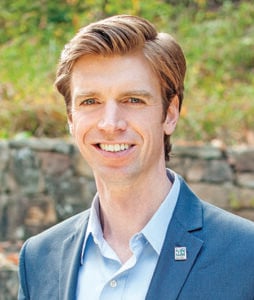
O’Mara: We kind of think about three intersecting crisis that we’re facing right now.
One is on the wildlife side, just the loss of biodiversity. We’re just trying to make sure we’re recovering the full diversity of wildlife. And, we’ve done a heck of a job in this country, saving the things we hunt and fish with a few exceptions … So, there’s just a lot of work that we need to do, and most of it comes back to habitat.
Another is around climate, and climate change is affecting everything, whether it’s the more extreme weather events we’re seeing or the more intense algal blooms in the Great Lakes… I think we need to find solutions that work in harmony with nature. Trying to find the wildlife-responsible solutions, if you will…
And, the third big item that we’re working on is in environmental justice. Industrial pollution is a big one, which not only has a big effect on people but also wildlife. We need to broaden the coalition that is doing the work to restore natural resources that meet people’s needs.
RELATED CONTENT FROM OUTDOOR NEWS:
A quick chat with big-game hunter Craig Boddington
A quick chat with Emmett Brown, Fresh Water Fishing Hall of Fame Executive Director
Read many more “Quick Chats” with some of the biggest names in hunting, fishing and conservation
Outdoor News: If you could select one success story from the NWF, what would it be?
O’Mara: It’s just making conservation a top, national priority with Republicans and Democrats. There’s still a lot of work to do, but the past few years we’ve seen some huge successes on the federal side during a divided government. And it’s a testament to the good work the federation and its affiliates have been doing for generations.
Outdoor News: The Clean Water Act has come under some scrutiny this century and especially in 2023. What do you see as the NWF’s role in this fight?
O’Mara: The Supreme Court, I think, has significant misgivings about the interpretation of the law. We’re going to need new federal legislation at some point.
What we’re seeing now is harmful to the resource, and it creates unpredictability for folks that are trying to develop. We’re going to need Congressional action. The challenge is getting to a place where the politics allow that. And, that’s probably not right now given all of the challenges and disagreements on just about everything.
Our role is two-fold. One is to pull together the coalition to draw the right and left together to be ready to go when the window of opportunity presents itself. And I think secondly is to lift up our states to do more. There’s been a lot of places that really want to destroy all of their wetlands. But, I think more and more folks are seeing that when we get these big flooding events if you have wetlands a lot of that water winds up in the wetlands and not in your basements.
Outdoor News: Who are some of the key partners that NWF works with to accomplish its mission?
O’Mara: This is one of my favorite things about the National Wildlife Federation in that I work as closely with the League of Conservation Voters and the Sierra Club as I do with Ducks Unlimited, the Congressional Sportsmen’s Foundation, and the Boone and Crockett Club.
There’s really no other group that traverses those worlds. We’re part of the American Wildlife Conservation Partners, which is made up of 52 of the largest hunting and fishing organizations in the country … We’re blessed to be in a position to be a trusted partner with folks who might not agree on everything.
But because of our commonsense, science-based approach to our work we’re able to work with a lot of different folks in different ways… I’m proud that we’re pretty much able to work with anybody. We try to be an organization that everybody trusts, which isn’t easy these days.
Outdoor News: What issue or issues make you particularly proud of the NWF?
O’Mara: I’m proud that at a time when most folks think that nothing can get done that we’re able to disprove that with some frequency.
A great example is in the Great Lakes where the NWF and some of its partners are involved with the Healing Our Waters and Great Lakes Restoration Initiative. The beautiful thing about that is it’s not a partisan thing. It’s about having a clean and healthy Great Lakes for the region…
There was this moment a few years ago when President Trump’s budget proposed zeroing out the Great Lakes Restoration Initiative. It was one of those moments when I was so proud of the work we had done a few years before because Republicans and Democrats on both sides of the aisle said “over our dead bodies.”
It was just one of those moments where it wasn’t partisan but it was about the resource. I think we’re seeing similar bi-partisan efforts around algal blooms in Lake Erie, the Army Corps projects around the Brandon Road Lock and Dam (in Illinois) for Asian carp, and Line 5 under the Straits. And for me success is when we can get to a place where it’s not a partisan talking point but it’s a shared value that everyone can rally around. We’re seeing this more and more.

